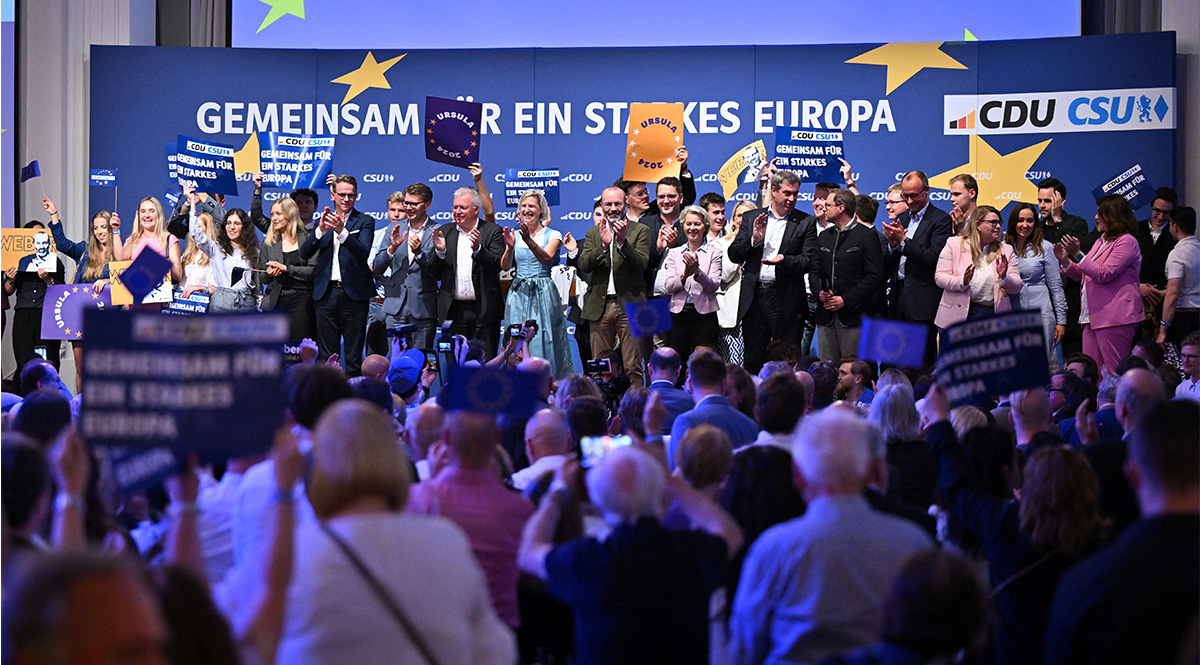Germany's Ruling Coalition Fractures, with Early Elections Probable
On 6 November, Chancellor Olaf Scholz dismissed the Liberals leader Christian Lindner from his position as finance minister. The decision marks the departure of the FDP from the governing coalition. In the coming months, Germany will be governed by a minority cabinet consisting of the SPD and the Greens. The split in the coalition is the result of a series of disputes between the FDP and the other parties over, among other things, the direction of economic policy and the scale of public spending. The most likely political scenario is early elections to the Bundestag, which could take place in March next year.
.png) Annegret Hilse / Reuters / Forum
Annegret Hilse / Reuters / Forum
What led to the split in the coalition?
Last week, media published a document by Minister Lindner addressed to Chancellor Scholz and others in which he demanded far-reaching changes to economic and budgetary policy. Some of the demands, such as a revision of existing climate policy, tax cuts for corporations, and changes to maximum working hours, hit directly at key elements of the Greens and SPD agenda and undermined the government’s existing policy. The fact that the document was made public through a media leak suggests that Lindner’s aim was not only to put his partners under additional pressure ahead of the coalition leaders’ negotiations on its future from Sunday to Wednesday but also to provoke the removal of the FDP from the coalition.
The September parliamentary elections in the states of Brandenburg, Saxony, and Thuringia accelerated the disintegration of the governing coalition, which had been underway for many months. Since then, the coalition parties have focused on emphasising their own priorities by stressing demands that both hit out at the other parties and do not fit into the government’s programme. This tactic was used in particular by the Liberals, for whom it has become too politically costly to be in the coalition. According to polls, the party may not exceed the 5% electoral threshold. The removal of the FDP from the coalition allows the party to present itself as staunch defenders of liberal values and is also an attempt to mobilise its own electorate ahead of early elections.
What will happen in the following months?
According to the plan announced by Chancellor Scholz, a minority government consisting of SPD and Green politicians will attempt to pass some laws in November and December to support German industry by, among other things, guaranteeing lower energy prices. However, in the face of a split in the coalition and the reluctance of the CDU, which recognises that the Chancellor’s main aim is to postpone the elections, the passage of these laws remains doubtful. At the first session of the Bundestag in 2025, Chancellor Scholz is expected to propose a vote of confidence in the government. A likely defeat given the lack of a majority in parliament will enable the German president to call new federal elections, which could be held in mid-March. This is the only possibility of bringing about early elections, as the Basic Law does not provide for the possibility of self-dissolution of the Bundestag. Chancellor Scholz’s plan stems from the SPD’s desire to prepare for the election campaign. Social Democracy, unlike the CDU, has not yet decided on a candidate for Chancellor. The March election would coincide with the planned local elections in Hamburg, Scholz’s bastion, where the SPD is leading in the polls. Chancellor Scholz is hoping that success in Hamburg will help the Social Democrats achieve a good enough result for the SPD to enter the next government coalition as a minority partner
These plans are criticised by the CDU, which is calling for new elections as soon as possible. However, the opposition does not have the instruments to force the Chancellor to step down. The head of government can only be dismissed through a constructive vote of no confidence, thus the formation of a new government majority, which is not possible with the current balance of seats in the Bundestag.
How will the break-up of the coalition affect German political parties?
The split in the coalition and the prospect of elections strengthen the position of the opposition CDU, which has been leading in the polls for many months and also succeeded in the European Parliament elections in June.
The political crisis, combined with Donald Trump’s victory in the U.S., may also strengthen the two populist parties Alternative for Germany (AfD) and the Sahra Wagenknecht Alliance (BSW). The break-up of the governing coalition lends credibility to the demands they formulate for a radical remodelling of the state and their criticism of Germany’s political elite, which they regard as incompetent.
The current political crisis is weakening the position of the SPD, the Greens, and the FDP. In the following months, attempts by the recent coalition partners to blame each other for the failure of this political project can be expected. In the run-up to the next few weeks, mobilisation can be expected from FDP activists and supporters who have long contested the party’s presence in the coalition. The Liberals will try to present themselves as a party that defended liberal values in the economy and tried to look after the interests of German industry and business.
How will the coalition break-up effect German foreign policy?
The government’s loss of its majority in parliament, as well as the election campaign and the time needed to formulate a new cabinet, will mean that Germany’s international activity can be expected to decline until at least the summer of 2025. The country’s position in the EU and NATO will also be weaker in the coming months. Despite declarations about the need for new efforts to increase EU defence capabilities in the face of Trump’s return to power, the political crisis will prevent Germany from taking such new initiatives. However, the existing programmes for the modernisation of the armed forces and financial support for Ukraine remain in effect and will be further implemented.
In the context of foreign policy, the CDU will emphasise the need to quickly form a functioning government that would enable Germany to play a greater role as a key EU and NATO state. The narrative of the Greens, who yesterday were the only ones to emphasise the need for increased German aid to Ukraine in the face of Trump’s victory, will move in a similar direction. The AfD and BSW will continue to push a pro-Russian and anti-NATO political agenda by calling for a halt to aid to Ukraine and a return to “dialogue” with Russia.




(1).jpg)